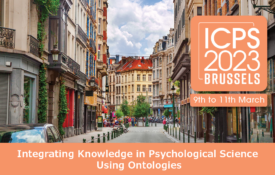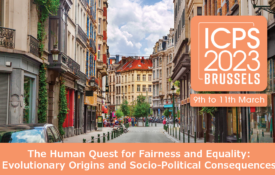-
That Tip-Of-The-Tongue Feeling May Be an Illusion
Sometimes you know there's just the right word for something, but your brain can't find it. That frustrating feeling is called the tip-of-the-tongue (TOT) state—and for decades psychologists assumed it was caused by a partial recollection of the answer. But new research suggests this experience may be largely an illusion. Being sure you know something doesn't mean you actually do. In a series of experiments published in the Journal of Experimental Psychology: General, college students attempted to answer 80 general knowledge questions with one-word answers.
-
The Epidemic of Isolation Is as Harmful as Smoking
Your doctor’s orders for staying healthy might include a daily routine of eating your broccoli, going to the gym and getting a good night’s sleep. Now, the US surgeon general would like to add another action item to the list: Reach out to a friend. In a new report, Vivek Murthy says that the US is experiencing an epidemic of loneliness and isolation that can be as harmful to our health as smoking up to 15 cigarettes a day. Murthy also offers practical fixes: public policies and spaces that bring people together, as well as simple things like texting a friend or volunteering.
-
Your Brain Has Tricked You Into Thinking Everything Is Worse
Perhaps no political promise is more potent or universal than the vow to restore a golden age. From Caesar Augustus to the Medicis and Adolf Hitler, from President Xi Jinping of China and President “Bongbong” Marcos of the Philippines to Donald Trump’s “Make America Great Again” and Joe Biden’s “America Is Back,” leaders have gained power by vowing a return to the good old days. What these political myths have in common is an understanding that the golden age is definitely not right now. Maybe we’ve been changing from angels into demons for centuries, and people have only now noticed the horns sprouting on their neighbors’ foreheads.
-

Keynote Address: Integrating Knowledge in Psychological Science Using Ontologies
Susan Michie presents the “Behaviour Change Intervention Ontology,” which has the potential to dramatically enhance evidence integration and knowledge development using hybrid human-computer systems, thereby accelerating scientific advancements.
-

Keynote Address: The Human Quest for Fairness and Equality: Evolutionary Origins and Socio-Political Consequences
Ernst Fehr shows that individuals cluster around three global, fundamentally distinct, preference types characterized as altruistic, inequality averse, and predominantly selfish—with the selfish type typically comprising a minority of individuals.
-

Keynote Address: Blood, Sweat, and Tears: Human Social Chemosignaling in Health and Disease
Noam Sobel describes his findings on mechanisms of human chemosignaling in both health and disease. Based on these findings, he argues that, in contrast to common notions, humans are highly olfactory animals, and body-odors dominate our social behavior.

